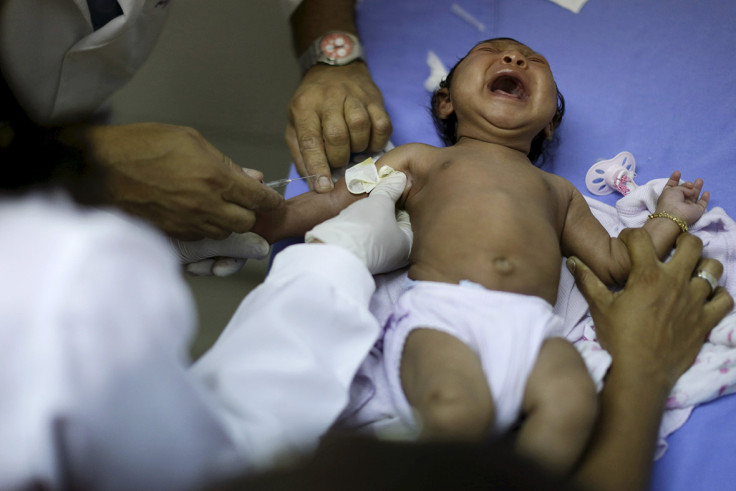Zika virus: Australia reports two cases of infection as Asia rush to put in safeguards

Asian countries are rushing to put in safeguards against the Zika virus as Australia says two domestic cases have been diagnosed. The World Health Organization declared an international public health emergency over the virus, which has been blamed for causing microcephaly, characterised by abnormally small heads and neurological disorders in newborns.
Australian officials have also said that mosquitoes carrying the Zika virus have been detected at the Sydney International Airport. They however said the virus was unlikely to establish local transmission, given the lack of large numbers of the Aedes Aegypti mosquitoes.
The New South Wales health department said two Sydney residents were diagnosed with the Zika virus on Friday 29 January after returning home from a holiday in Haiti. Formal diagnosis can take several weeks.
The department did not say when the couple were tested. It however said that the couple had mild cases of the virus and had recovered.
The NSW Health said in a statement: "It is very unlikely that Zika virus will establish local transmission in NSW as the mosquitoes that spread the infection are not established here - although they are found in some parts of north Queensland."
This is not the first time Australia has reported a case of Zika. From 2013 through 2015, a handful of cases involving travellers returning from Indonesia, the Cook Islands and Solomon Islands were reported. Last year, a 27-year-old man was believed to have contracted the virus in Bali, Indonesia after he was bitten by a monkey.
Alert in Asia Pacific countries
In Australia, the Department of Agriculture is imposing additional cabin spraying of insecticide on flights arriving into Sydney from Southeast Asia. The 'step-up' in procedures includes adding extra mosquito vector monitoring traps.
"These measures are undertaken to prevent these mosquitoes establishing breeding populations in Australia, thereby preventing the potential for the local spread of these diseases," the department said. Queensland is on high alert for the disease from its Asian neighbours.
Malaysia will be issuing specific guidelines shortly, Health Minister Dr S Subramaniam told reporters on 2 February. In general, Malaysians have been advised to stay away from South America.
Although a case of Zika infection was found in Indonesia last year, the minister admitted that it would be difficult to impose travel restrictions on people travelling to the country or vice versa. More than 2 million Indonesians are estimated to be working in Malaysia.
Hong Kong will raise its alert levels with effect from 5 February, making it mandatory for doctors to report any suspected case to the Centre for Health Protection. It is also planning to impose a blood donation ban on those who have visited affected areas as the virus is transmitted through the blood.
Although there are no current cases of the virus in Hong Kong, experts have warned that it is just a matter of time. Hundreds of thousands of visitors arrive in Hong Kong from all over the world.
The government is not considering any travel restrictions for the moment. It however has urged its residents who have travelled to the affected areas to continue to use mosquito repellents for two weeks after arrival.
Japan's Health Policy Bureau has advised pregnant women not to travel to the epidemic area. It has also put all infectious disease testing facilities in Japan on standby, in the event of a worst-case scenario.
The country's Health, Labour and Welfare Minister Yasuhisa Shiozaki said there are also plans to require doctors to report patients carrying the Zika virus, under a new infectious disease law. "It is important for those travelling to the epidemic area such as Latin America to pay attention not to be bitten by mosquitoes," Shiozaki said.
The Zika virus is not thought to be of a major concern in Japan due to the low winter temperatures which are not conducive for mosquitoes.
In South Korea, following an emergency meeting, the authorities have advised citizens to be cautious when travelling overseas, especially in countries in Latin America and Southeast Asia. They have also warned pregnant women against travelling to Latin American countries.
Further, doctors who fail to report patients with symptoms of an infection, could face fines of up to $2m won (£1,143, €1,508, $1,650). In Vietnam, Ho Chi Minh City's international airport has started temperature screening for arriving passengers.
© Copyright IBTimes 2025. All rights reserved.






















